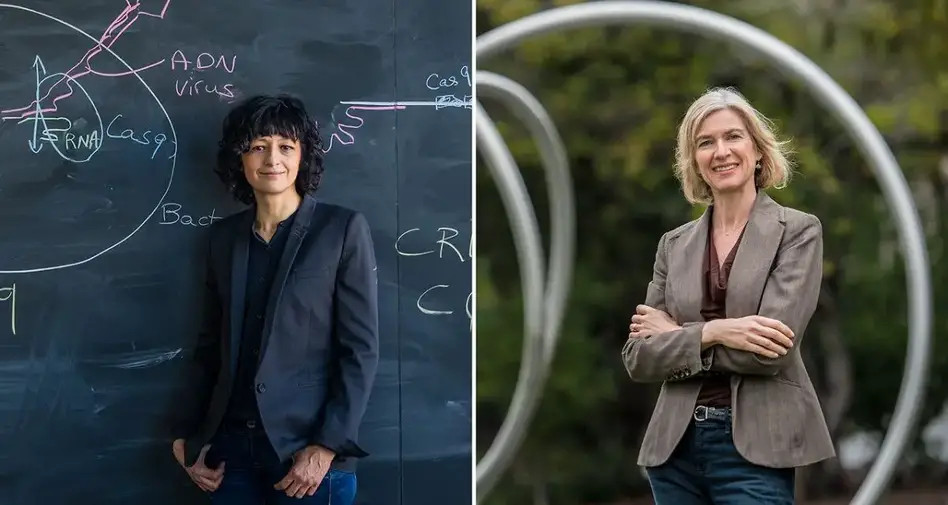
Emmanuelle Charpentier (left), born 1968 in Juvisy-sur-Orge, France. Ph.D. 1995 from Institut Pasteur, Paris, France. Director of the Max Planck Unit for the Science of Pathogens, Berlin, Germany. Jennifer A. Doudna (right), born 1964 in Washington, D.C, USA. Ph.D. 1989 from Harvard Medical School, Boston, USA. Professor at the University of California, Berkeley, USA and Investigator, Howard Hughes Medical Institute.
Emmanuelle Charpentier and Jennifer Doudna are awarded the Nobel Prize in Chemistry 2020 for discovering one of gene technology’s sharpest tools: the CRISPR/Cas9 genetic scissors. Researchers can use these to change the DNA of animals, plants and microorganisms with extremely high precision. This technology has revolutionised the molecular life sciences, brought new opportunities for plant breeding, is contributing to innovative cancer therapies and may make the dream of curing inherited diseases come true.
Sources:
- October 6, 2020. “The Nobel Prize in Chemistry 2020.” The Nobel Prize.

https://www.nobelprize.org/prizes/chemistry/2020/popular-information/.
Nobel Prize. - October 7, 2020. Heidi Ledford and Ewen Callaway. “Pioneers of Revolutionary CRISPR Gene Editing Win Chemistry Nobel.” Nature.

https://www.nature.com/articles/d41586-020-02765-9.
General Website Link. - October 7, 2020. “Nobel Prize for Chemistry Awarded to Two Women for First Time in History.” TASS.

https://tass.com/science/1209673.
General Website Link. - October 8, 2020. Hanae Armitage. “How Does 2020 Nobel Prize-Winning CRISPR Technology Work?” Scope.

https://scopeblog.stanford.edu/2020/10/07/how-does-2020-nobel-prize-winning-crispr-technology-work/.
University. - October 10, 2020. H. Asghar. “The Nobel Prize in Chemistry 2020 – Rewriting DNA.” MYCPLUS – C and C++ Programming Resources.

https://www.mycplus.com/news/technology/rewriting-dna/.
General Website Link.